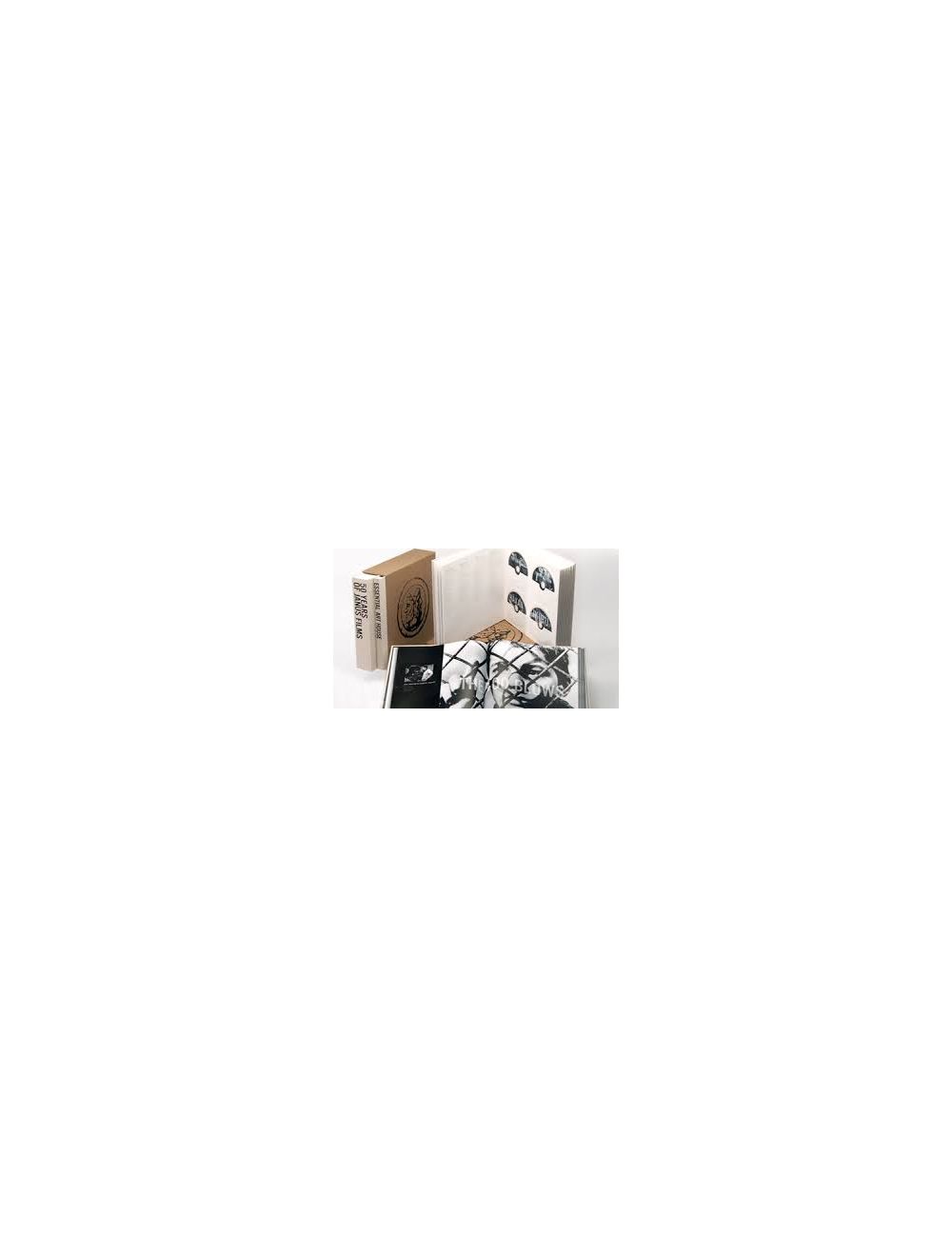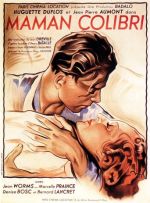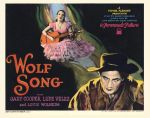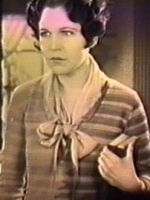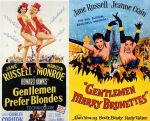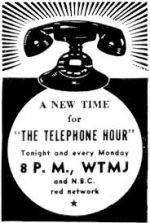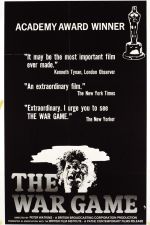Essential Art House: 50 Years of Janus Films (50-DVD) On DVD
| Actors: | Marcel Dalio, Nora Gregor, Breno Mello, Marpessa Dawn, Lourdes de Oliveira |
| Director: | Akira Kurosawa, Alfred Hitchcock, Andrzej Wajda, Anthony Asquith, Benjamin Christensen |
| Genre: | Drama |
| Year: | N/A |
| Studio: | Criterion |
| Length: | 5347 minutes |
| Released: | October 24, 2006 |
| Rating: | Not Rated |
| Format: | DVD (NTSC/Region 1) |
| Misc: | Color |
| Language: | English, French, Russian |
| Subtitles: | N/A |
DESCRIPTION:
Janus Films opened American viewers' eyes to the pleasures of Ingmar Bergman, Federico Fellini, and François Truffaut at the height of their artistic powers. Celebrate the fiftieth anniversary of this world-renowned distribution company with Essential Art House: 50 Years of Janus Films, an expansive collectors' box set featuring fifty classic films on DVD and a lavishly illustrated hardcover book that tells the story of Janus Films through an essay by film historian Peter Cowie. Includes a tribute from Martin Scorsese and extensive, all-new notes on all fifty films, plus cast and credit listings and U.S. premiere information.
Collector's set includes
- The 39 Steps - Alfred Hitchcock, 1935
- The best known of Hitchcock's British films, this civilized spy yarn follows the escapades of Richard Hannay (Robert Donat), who stumbles into a conspiracy that involves him in a hectic chase across the Scottish moors - a chase in which he is both the pursuer and the pursued.
- The 400 Blows - François Truffaut, 1959
- François Truffaut sensitively re-creates the trials of his own difficult childhood in the film that marked his emergence as one of Europe's most brilliant auteurs and signaled the beginning of the French New Wave.
- Ballad of a Soldier - Grigori Chukhrai, 1959
- A milestone in Russian cinema, Ballad of a Soldier follows Alyosha as he journeys home once he is granted a visit with his mother after single-handedly fending off two enemy tanks.
- Beauty and the Beast - Jean Cocteau, 1946
- Beauty and the Beast is a landmark feat of cinematic fantasy in which master filmmaker Jean Cocteau conjures spectacular visions of enchantment, desire, and death that have never been equaled.
- Black Orpheus - Marcel Camus, 1959
- Black Orpheus retells the myth of Orpheus and Eurydice against the madness of Carnival in Rio de Janeiro. With its magnificent color photography and lively soundtrack, this film brought the infectious bossa nova beat to the United States.
- Brief Encounter - David Lean, 1945
- From Noël Coward's play Still Life, legendary filmmaker David Lean deftly explores the thrill, pain, and tenderness of an illicit romance in the dour, gray Britain of 1945.
- The Fallen Idol - Carol Reed, 1948
- Elegantly balancing suspense and farce, Carol Reed and Graham Greene's tale of the fraught relationship between a boy and the beloved butler he suspects of murder is a delightfully macabre thriller of the first order and a visually and verbally dazzling knockout.
- Fires on the Plain - Kon Ichikawa, 1959
- An agonizing portrait of desperate Japanese soldiers stranded in a strange land during World War II, Kon Ichikawa's Fires on the Plain is a compelling descent into psychological and physical oblivion, and one of the most powerful works from one of Japanese cinema's most versatile filmmakers.
- Fists in the Pocket- Marco Bellocchio, 1965
- Tormented by twisted desires, a young man takes drastic measures to rid his grotesquely dysfunctional family of its various afflictions in this astonishing debut from Marco Bellocchio.
- Forbidden Games - René Clément, 1952
- A timeless evocation of childhood innocence corrupted, René Clément's mythical and heartbreakingly real Forbidden Games tells the story of a young girl orphaned by war and the farm boy she joins in a fantastical world of macabre play.
- Grand Illusion - Jean Renoir, 1937
- Jean Renoir's antiwar masterpiece, hailed as one of the greatest films ever made, stars Jean Gabin and Pierre Fresnay as French soldiers held in a World War I German prison camp.
- Häxan - Benjamin Christensen, 1922
- Benjamin Christensen's legendary silent film uses a series of dramatic vignettes to explore the scientific hypothesis that the witches of the Middle Ages suffered the same hysteria as turn-of-the-century psychiatric patients. Häxan is a witches' brew of the scary, gross, and darkly humorous.
- Ikiru - Akira Kurosawa, 1952
- An aging bureaucrat with stomach cancer decides to strip the veneer off his existence and find meaning in his final days. Considered by some to be Akira Kurosawa's greatest achievement, Ikiru offers a multifaceted look at a life through a prism of perspectives.
- Il Posto - Ermanno Olmi, 1961
- When young Domenico ventures from the small village of Meda to Milan in search of employment, he finds himself on the bottom rung of the bureaucratic ladder in a huge, faceless company in Ermanno Olmi's tender coming-of-age story.
- The Importance of Being Earnest - Anthony Asquith, 1952
- Oscar Wilde's enduringly hilarious story of two young women who think themselves engaged to the same nonexistent man is given the grand Technicolor treatment. Seldom has a classic stage comedy been so engagingly transferred to the screen.
- Le Jour se lève - Marcel Carné, 1939
- A story of obsessive sexuality and murder - in which working class everyman François (Jean Gabin) resorts to killing in order to free the woman he loves from the controlling influence of another man - Le jour se lève cemented the enormous reputations of Gabin and director Marcel Carné.
- Jules and Jim - François Truffaut, 1962
- Hailed as one of the finest films ever made, legendary director François Truffaut's early masterpiece charts the relationship between two friends and the object of their mutual obsession over the course of twenty-five years.
- Kind Hearts and Coronets - Robert Hamer, 1949
- Dennis Price is sublime as an embittered young commoner determined to avenge his mother's unjust disinheritance by ascending to her family's dukedom in one of Ealing Studios' greatest triumphs, and one of the most wickedly black comedies ever made.
- Knife in the Water - Roman Polanski, 1962
- A husband, a wife, a stranger, a knife: Roman Polanski sets them all adrift on a weekend filled with simmering resentments and gut-churning suspense in his seminal psychological thriller, still one of the greatest feature debuts in film history.
- The Lady Vanishes - Alfred Hitchcock, 1938
- In Alfred Hitchcock's most quick-witted and devilish comic thriller, a young woman finds herself drawn into a complex web of mystery and high adventure while traveling across Europe by train. The Lady Vanishes remains one of the master filmmaker's purest delights.
- The Life and Death of Colonel Blimp - Michael Powell and Emeric Pressburger, 1943
- The passions and pitfalls of a lifetime in the military are dramatized in Powell and Pressburger's magnificent epic which follows the exploits of pristine British soldier Clive Candy (Roger Livesey).
- Loves of a Blonde - Milos Forman, 1965
- A tender and humorous look at a young woman's journey from the first pangs of romance to its inevitable disappointments, Loves of a Blonde immediately became a classic of the Czech New Wave and earned Milos Forman his first Academy Award nomination.
- L'avventura - Michelangelo Antonioni, 1960
- A girl mysteriously disappears on a yachting trip. While her lover and her best friend search for her across Italy, they begin an affair. Antonioni's penetrating study of the idle upper class offers stinging observations on spiritual isolation and the many meanings of love.
- M - Fritz Lang, 1931
- Peter Lorre stars as serial killer Hans Beckert in Fritz Lang's harrowing masterwork, a suspenseful panorama of private madness and public hysteria that to this day remains the blueprint for the psychological thriller.
- M. Hulot's Holiday - Jacques Tati, 1953
- Pipe-smoking Monsieur Hulot, Jacques Tati's endearing clown, takes a holiday at a seaside resort where his presence provokes one catastrophe after another. The first entry in the Hulot series is a masterpiece of gentle slapstick.
- Miss Julie - Alf Sjöberg, 1951
- Swedish filmmaker Alf Sjöberg's visually innovative, Cannes Grand Prix-winning adaptation of August Strindberg's renowned 1888 play brings to scalding life the excoriating words of the stage's preeminent surveyor of all things rotten in the state of male-female relations.
- Pandora's Box - Georg Wilhelm Pabst, 1929
- Sensationally modern, G. W. Pabst's lurid, controversial melodrama follows the downward spiral of the fiery, brash, yet innocent showgirl Lulu (Louise Brooks), whose sexual vivacity has a devastating effect on everyone she comes in contact with.
- Pépé le Moko - Julien Duvivier, 1937
- Pépé is a wanted man: women long for him, rivals hope to destroy him, and the law is breathing down his neck at every turn. On the lam, he is safe from the clutches of the police, until a Parisian playgirl compels him to risk his life. Pépé le moko is a landmark of poetic realism.
- Pygmalion - Anthony Asquith and Leslie Howard, 1938
- Cranky Professor Henry Higgins (Leslie Howard) takes a bet that he can turn Cockney guttersnipe Eliza Doolittle (Wendy Hiller) into a "proper lady" in a mere six months in this delightful comedy of bad manners, based on the play by George Bernard Shaw.
- Rashomon - Akira Kurosawa, 1950
- The murder of a man and the rape of his wife in a forest grove - seen from four different perspectives. Akira Kurosawa's meditation on the nature of "truth" transformed narrative cinema as we know it.
- Richard III - Laurence Olivier, 1955
- As director, producer, and star, Laurence Olivier transfigures Shakespeare's great historical drama Richard III into a mesmerizing vision of Machiavellian villainy.
- The Rules of the Game - Jean Renoir, 1939
- Widely regarded as one of the greatest films ever made, Jean Renoir's masterpiece is a scathing critique of corrupt French society cloaked in a comedy of manners.
- Seven Samurai - Akira Kurosawa, 1954
- Sixteenth-century villagers hire the eponymous warriors to protect them from invading bandits. This gripping three-hour ride is one of the most beloved movie epics of all time.
- The Seventh Seal - Ingmar Bergman, 1957
- Much studied, imitated, even parodied, but never outdone, Bergman's stunning allegory of man's search for meaning was one of the benchmark foreign imports of America's 1950s art house heyday, pushing cinema's boundaries and ushering in a new era of moviegoing.
- The Spirit of the Beehive - Víctor Erice, 1973
- Widely regarded as the greatest Spanish film of the 1970s, The Spirit of the Beehive is a visually arresting, bewitching portrait of a child's haunted inner life.
- La Strada - Federico Fellini, 1954
- Federico Fellini's wife Giulietta Masina plays Gelsomina, a naive girl sold into the employ of a brutal strongman in a traveling circus in this poetic fable of love and cruelty, winner of the 1956 Academy Award for Best Foreign Film.
- Summertime - David Lean, 1955
- Katharine Hepburn plays a lonely American spinster whose dream of romance finally becomes a bittersweet reality when she meets a handsome -- but married -- Italian man while vacationing in Venice.
- The Third Man - Carol Reed, 1949
- Pulp novelist Holly Martins travels to shadowy, postwar Vienna, only to find himself investigating the mysterious death of an old friend, black-market opportunist Harry Lime - and thus begins this legendary tale of love, deception, and murder.
- Three Documentaries - Saul J. Turell, 1962
- Three delightful tributes to Hollywood: The Great Chase, a rollicking compendium of the greatest hits of silent-cinema chase sequences; The Love Goddesses, a look at cinema's most alluring female sex symbols; and the Oscar-winning remembrance Paul Robeson: Tribute to an Artist.
- Ugetsu - Kenji Mizoguchi, 1953
- Derived from stories by Akinari Ueda and Guy de Maupassant, Ugetsu, a ghost story like no other, is surely Japanese director Kenji Mizoguchi's supreme achievement and one of the most beautiful films ever made.
- Umberto D. - Vittorio De Sica, 1952
- Shot on location with a cast of nonprofessional actors, Vittorio De Sica's neorealist masterpiece follows an elderly pensioner as he struggles to fulfill the most fundamental human needs -- food, shelter, companionship -- during Italy's postwar economic boom.
- The Virgin Spring - Ingmar Bergman, 1960
- Winner of the Academy Award for Best Foreign Language Film, The Virgin Spring is a harrowing tale of faith, revenge, and savagery in medieval Sweden.
- Viridiana - Luis Buñuel, 1961
- Novice nun Viridiana does her utmost to maintain her Catholic principles, but her lecherous uncle and a motley assemblage of paupers force her to confront the limits of her idealism. Luis Buñuel's irreverent vision of life as a beggar's banquet is regarded by many as his masterpiece.
- The Wages of Fear - Henri-Georges Clouzot, 1953
- Four desperate men sign on for a suicide mission to drive trucks loaded with nitroglycerin over a treacherous mountain route - a white-knuckle ride from France's legendary master of suspense, Henri-Georges Clouzot.
- The White Sheik - Federico Fellini, 1952
- The style and themes which made Federico Fellini world famous are already apparent in this charming comedy (his first solo directorial effort), featuring such long-time collaborators as his wife (actress Giulietta Masina) and composer Nino Rota.
- Wild Strawberries - Ingmar Bergman, 1957
- Professor Isak Borg (Victor Sjöström) is forced to face his past in the film that catapulted Ingmar Bergman to the forefront of world cinema.
| Actors: | Marcel Dalio, Nora Gregor, Breno Mello, Marpessa Dawn, Lourdes de Oliveira |
| Director: | Akira Kurosawa, Alfred Hitchcock, Andrzej Wajda, Anthony Asquith, Benjamin Christensen |
| Genre: | Drama |
| Year: | N/A |
| Studio: | Criterion |
| Length: | 5347 minutes |
| Released: | October 24, 2006 |
| Rating: | Not Rated |
| Format: | DVD (NTSC/Region 1) |
| Misc: | Color |
| Language: | English, French, Russian |
| Subtitles: | N/A |
DESCRIPTION:
Janus Films opened American viewers' eyes to the pleasures of Ingmar Bergman, Federico Fellini, and François Truffaut at the height of their artistic powers. Celebrate the fiftieth anniversary of this world-renowned distribution company with Essential Art House: 50 Years of Janus Films, an expansive collectors' box set featuring fifty classic films on DVD and a lavishly illustrated hardcover book that tells the story of Janus Films through an essay by film historian Peter Cowie. Includes a tribute from Martin Scorsese and extensive, all-new notes on all fifty films, plus cast and credit listings and U.S. premiere information.
Collector's set includes
- The 39 Steps - Alfred Hitchcock, 1935
- The best known of Hitchcock's British films, this civilized spy yarn follows the escapades of Richard Hannay (Robert Donat), who stumbles into a conspiracy that involves him in a hectic chase across the Scottish moors - a chase in which he is both the pursuer and the pursued.
- The 400 Blows - François Truffaut, 1959
- François Truffaut sensitively re-creates the trials of his own difficult childhood in the film that marked his emergence as one of Europe's most brilliant auteurs and signaled the beginning of the French New Wave.
- Ballad of a Soldier - Grigori Chukhrai, 1959
- A milestone in Russian cinema, Ballad of a Soldier follows Alyosha as he journeys home once he is granted a visit with his mother after single-handedly fending off two enemy tanks.
- Beauty and the Beast - Jean Cocteau, 1946
- Beauty and the Beast is a landmark feat of cinematic fantasy in which master filmmaker Jean Cocteau conjures spectacular visions of enchantment, desire, and death that have never been equaled.
- Black Orpheus - Marcel Camus, 1959
- Black Orpheus retells the myth of Orpheus and Eurydice against the madness of Carnival in Rio de Janeiro. With its magnificent color photography and lively soundtrack, this film brought the infectious bossa nova beat to the United States.
- Brief Encounter - David Lean, 1945
- From Noël Coward's play Still Life, legendary filmmaker David Lean deftly explores the thrill, pain, and tenderness of an illicit romance in the dour, gray Britain of 1945.
- The Fallen Idol - Carol Reed, 1948
- Elegantly balancing suspense and farce, Carol Reed and Graham Greene's tale of the fraught relationship between a boy and the beloved butler he suspects of murder is a delightfully macabre thriller of the first order and a visually and verbally dazzling knockout.
- Fires on the Plain - Kon Ichikawa, 1959
- An agonizing portrait of desperate Japanese soldiers stranded in a strange land during World War II, Kon Ichikawa's Fires on the Plain is a compelling descent into psychological and physical oblivion, and one of the most powerful works from one of Japanese cinema's most versatile filmmakers.
- Fists in the Pocket- Marco Bellocchio, 1965
- Tormented by twisted desires, a young man takes drastic measures to rid his grotesquely dysfunctional family of its various afflictions in this astonishing debut from Marco Bellocchio.
- Forbidden Games - René Clément, 1952
- A timeless evocation of childhood innocence corrupted, René Clément's mythical and heartbreakingly real Forbidden Games tells the story of a young girl orphaned by war and the farm boy she joins in a fantastical world of macabre play.
- Grand Illusion - Jean Renoir, 1937
- Jean Renoir's antiwar masterpiece, hailed as one of the greatest films ever made, stars Jean Gabin and Pierre Fresnay as French soldiers held in a World War I German prison camp.
- Häxan - Benjamin Christensen, 1922
- Benjamin Christensen's legendary silent film uses a series of dramatic vignettes to explore the scientific hypothesis that the witches of the Middle Ages suffered the same hysteria as turn-of-the-century psychiatric patients. Häxan is a witches' brew of the scary, gross, and darkly humorous.
- Ikiru - Akira Kurosawa, 1952
- An aging bureaucrat with stomach cancer decides to strip the veneer off his existence and find meaning in his final days. Considered by some to be Akira Kurosawa's greatest achievement, Ikiru offers a multifaceted look at a life through a prism of perspectives.
- Il Posto - Ermanno Olmi, 1961
- When young Domenico ventures from the small village of Meda to Milan in search of employment, he finds himself on the bottom rung of the bureaucratic ladder in a huge, faceless company in Ermanno Olmi's tender coming-of-age story.
- The Importance of Being Earnest - Anthony Asquith, 1952
- Oscar Wilde's enduringly hilarious story of two young women who think themselves engaged to the same nonexistent man is given the grand Technicolor treatment. Seldom has a classic stage comedy been so engagingly transferred to the screen.
- Le Jour se lève - Marcel Carné, 1939
- A story of obsessive sexuality and murder - in which working class everyman François (Jean Gabin) resorts to killing in order to free the woman he loves from the controlling influence of another man - Le jour se lève cemented the enormous reputations of Gabin and director Marcel Carné.
- Jules and Jim - François Truffaut, 1962
- Hailed as one of the finest films ever made, legendary director François Truffaut's early masterpiece charts the relationship between two friends and the object of their mutual obsession over the course of twenty-five years.
- Kind Hearts and Coronets - Robert Hamer, 1949
- Dennis Price is sublime as an embittered young commoner determined to avenge his mother's unjust disinheritance by ascending to her family's dukedom in one of Ealing Studios' greatest triumphs, and one of the most wickedly black comedies ever made.
- Knife in the Water - Roman Polanski, 1962
- A husband, a wife, a stranger, a knife: Roman Polanski sets them all adrift on a weekend filled with simmering resentments and gut-churning suspense in his seminal psychological thriller, still one of the greatest feature debuts in film history.
- The Lady Vanishes - Alfred Hitchcock, 1938
- In Alfred Hitchcock's most quick-witted and devilish comic thriller, a young woman finds herself drawn into a complex web of mystery and high adventure while traveling across Europe by train. The Lady Vanishes remains one of the master filmmaker's purest delights.
- The Life and Death of Colonel Blimp - Michael Powell and Emeric Pressburger, 1943
- The passions and pitfalls of a lifetime in the military are dramatized in Powell and Pressburger's magnificent epic which follows the exploits of pristine British soldier Clive Candy (Roger Livesey).
- Loves of a Blonde - Milos Forman, 1965
- A tender and humorous look at a young woman's journey from the first pangs of romance to its inevitable disappointments, Loves of a Blonde immediately became a classic of the Czech New Wave and earned Milos Forman his first Academy Award nomination.
- L'avventura - Michelangelo Antonioni, 1960
- A girl mysteriously disappears on a yachting trip. While her lover and her best friend search for her across Italy, they begin an affair. Antonioni's penetrating study of the idle upper class offers stinging observations on spiritual isolation and the many meanings of love.
- M - Fritz Lang, 1931
- Peter Lorre stars as serial killer Hans Beckert in Fritz Lang's harrowing masterwork, a suspenseful panorama of private madness and public hysteria that to this day remains the blueprint for the psychological thriller.
- M. Hulot's Holiday - Jacques Tati, 1953
- Pipe-smoking Monsieur Hulot, Jacques Tati's endearing clown, takes a holiday at a seaside resort where his presence provokes one catastrophe after another. The first entry in the Hulot series is a masterpiece of gentle slapstick.
- Miss Julie - Alf Sjöberg, 1951
- Swedish filmmaker Alf Sjöberg's visually innovative, Cannes Grand Prix-winning adaptation of August Strindberg's renowned 1888 play brings to scalding life the excoriating words of the stage's preeminent surveyor of all things rotten in the state of male-female relations.
- Pandora's Box - Georg Wilhelm Pabst, 1929
- Sensationally modern, G. W. Pabst's lurid, controversial melodrama follows the downward spiral of the fiery, brash, yet innocent showgirl Lulu (Louise Brooks), whose sexual vivacity has a devastating effect on everyone she comes in contact with.
- Pépé le Moko - Julien Duvivier, 1937
- Pépé is a wanted man: women long for him, rivals hope to destroy him, and the law is breathing down his neck at every turn. On the lam, he is safe from the clutches of the police, until a Parisian playgirl compels him to risk his life. Pépé le moko is a landmark of poetic realism.
- Pygmalion - Anthony Asquith and Leslie Howard, 1938
- Cranky Professor Henry Higgins (Leslie Howard) takes a bet that he can turn Cockney guttersnipe Eliza Doolittle (Wendy Hiller) into a "proper lady" in a mere six months in this delightful comedy of bad manners, based on the play by George Bernard Shaw.
- Rashomon - Akira Kurosawa, 1950
- The murder of a man and the rape of his wife in a forest grove - seen from four different perspectives. Akira Kurosawa's meditation on the nature of "truth" transformed narrative cinema as we know it.
- Richard III - Laurence Olivier, 1955
- As director, producer, and star, Laurence Olivier transfigures Shakespeare's great historical drama Richard III into a mesmerizing vision of Machiavellian villainy.
- The Rules of the Game - Jean Renoir, 1939
- Widely regarded as one of the greatest films ever made, Jean Renoir's masterpiece is a scathing critique of corrupt French society cloaked in a comedy of manners.
- Seven Samurai - Akira Kurosawa, 1954
- Sixteenth-century villagers hire the eponymous warriors to protect them from invading bandits. This gripping three-hour ride is one of the most beloved movie epics of all time.
- The Seventh Seal - Ingmar Bergman, 1957
- Much studied, imitated, even parodied, but never outdone, Bergman's stunning allegory of man's search for meaning was one of the benchmark foreign imports of America's 1950s art house heyday, pushing cinema's boundaries and ushering in a new era of moviegoing.
- The Spirit of the Beehive - Víctor Erice, 1973
- Widely regarded as the greatest Spanish film of the 1970s, The Spirit of the Beehive is a visually arresting, bewitching portrait of a child's haunted inner life.
- La Strada - Federico Fellini, 1954
- Federico Fellini's wife Giulietta Masina plays Gelsomina, a naive girl sold into the employ of a brutal strongman in a traveling circus in this poetic fable of love and cruelty, winner of the 1956 Academy Award for Best Foreign Film.
- Summertime - David Lean, 1955
- Katharine Hepburn plays a lonely American spinster whose dream of romance finally becomes a bittersweet reality when she meets a handsome -- but married -- Italian man while vacationing in Venice.
- The Third Man - Carol Reed, 1949
- Pulp novelist Holly Martins travels to shadowy, postwar Vienna, only to find himself investigating the mysterious death of an old friend, black-market opportunist Harry Lime - and thus begins this legendary tale of love, deception, and murder.
- Three Documentaries - Saul J. Turell, 1962
- Three delightful tributes to Hollywood: The Great Chase, a rollicking compendium of the greatest hits of silent-cinema chase sequences; The Love Goddesses, a look at cinema's most alluring female sex symbols; and the Oscar-winning remembrance Paul Robeson: Tribute to an Artist.
- Ugetsu - Kenji Mizoguchi, 1953
- Derived from stories by Akinari Ueda and Guy de Maupassant, Ugetsu, a ghost story like no other, is surely Japanese director Kenji Mizoguchi's supreme achievement and one of the most beautiful films ever made.
- Umberto D. - Vittorio De Sica, 1952
- Shot on location with a cast of nonprofessional actors, Vittorio De Sica's neorealist masterpiece follows an elderly pensioner as he struggles to fulfill the most fundamental human needs -- food, shelter, companionship -- during Italy's postwar economic boom.
- The Virgin Spring - Ingmar Bergman, 1960
- Winner of the Academy Award for Best Foreign Language Film, The Virgin Spring is a harrowing tale of faith, revenge, and savagery in medieval Sweden.
- Viridiana - Luis Buñuel, 1961
- Novice nun Viridiana does her utmost to maintain her Catholic principles, but her lecherous uncle and a motley assemblage of paupers force her to confront the limits of her idealism. Luis Buñuel's irreverent vision of life as a beggar's banquet is regarded by many as his masterpiece.
- The Wages of Fear - Henri-Georges Clouzot, 1953
- Four desperate men sign on for a suicide mission to drive trucks loaded with nitroglycerin over a treacherous mountain route - a white-knuckle ride from France's legendary master of suspense, Henri-Georges Clouzot.
- The White Sheik - Federico Fellini, 1952
- The style and themes which made Federico Fellini world famous are already apparent in this charming comedy (his first solo directorial effort), featuring such long-time collaborators as his wife (actress Giulietta Masina) and composer Nino Rota.
- Wild Strawberries - Ingmar Bergman, 1957
- Professor Isak Borg (Victor Sjöström) is forced to face his past in the film that catapulted Ingmar Bergman to the forefront of world cinema.
| Product Name | Essential Art House: 50 Years of Janus Films (50-DVD) On DVD |
|---|---|
| This item is returnable | No |

